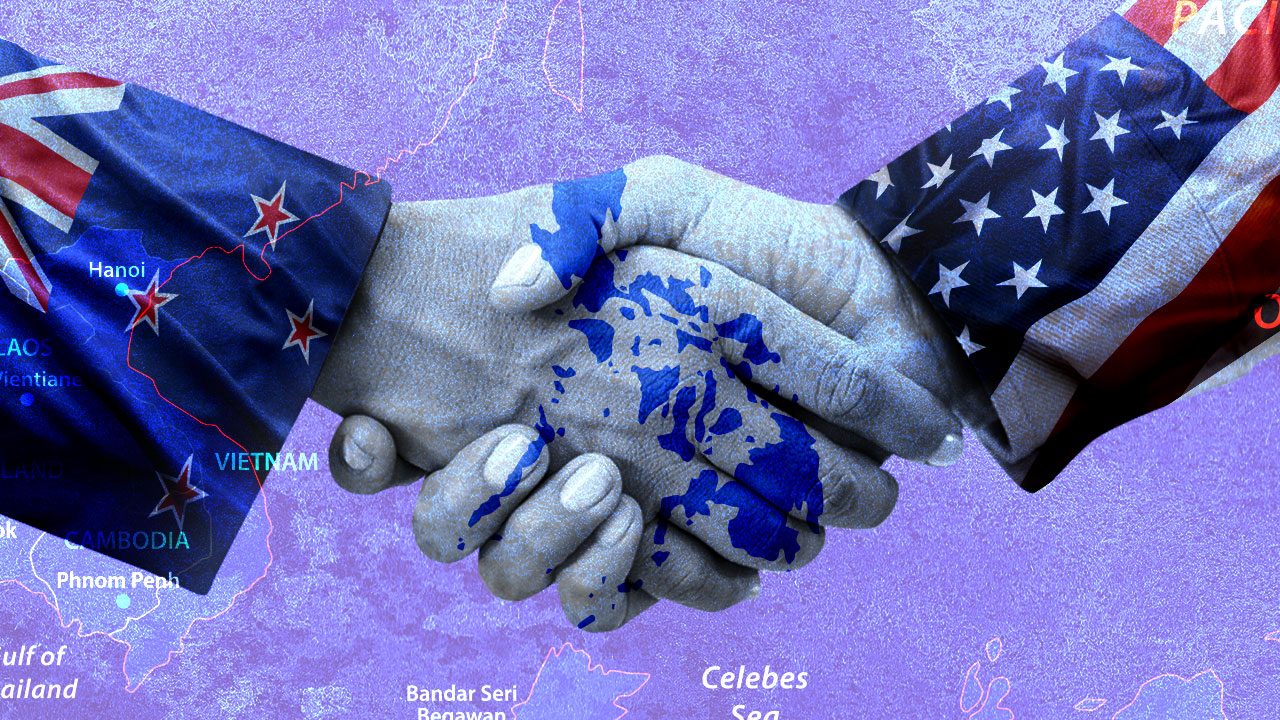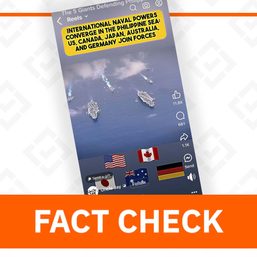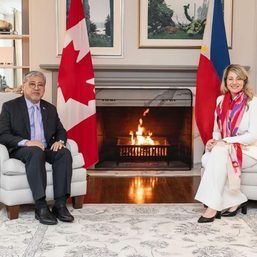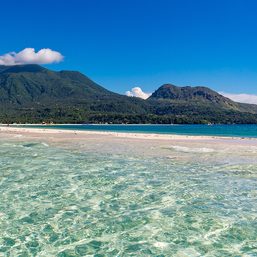SUMMARY
This is AI generated summarization, which may have errors. For context, always refer to the full article.

It’s a palpable feeling, a sense of importance that we’ve not experienced in years. You must have noticed the flurry of high-level visits of foreign officials to Manila and the upbeat rhetoric – about experiencing a renaissance in diplomacy and reaching new heights of relationships – slicing through the air.
More than anything else, it’s our geography that is putting us on the map of like-minded countries. The Philippines is close to Taiwan, with the northernmost islands of Batanes just a heartbeat away. Equally significant is the fact that our country’s waters form part of the contentious South China Sea.
In these two fronts, China has become more assertive. President Xi Jinping has said that “national reunification” was one of his priorities, stressing the need to oppose pro-independence forces in Taiwan. With Russia’s invasion of Ukraine, the nagging question has been: Will China do the same to Taiwan?
In the West Philippine Sea, Chinese bullying of Philippine Coast Guard and Navy-run ships has been accelerating, especially in the missions to resupply the troops in Ayungin Shoal.
Apart from our geography, an interlocking reason is President Ferdinand Marcos Jr.’s strengthening of security cooperation with the US and traditional friends like Japan and Australia. In this uncertain geopolitical environment, they have found the Philippines an indispensable ally under a leader who has cast his gaze on the West.
From Albanese to Kishida
Look who have come to Manila. Prime Minister Anthony Albanese was the first Australian leader in 20 years to visit the Philippines. The European Commission (EC) President Ursula von der Leyen’s visit was the first by an EC president in nearly 60 years of diplomatic relations.
Expectedly from the US, our treaty ally, we’ve had a number of visits, including by Vice President Kamala Harris, State Secretary Antony Blinken, and Defense Secretary Lloyd Austin.
Japan has been a steadfast presence and top Official Development Assistance donor. Prime Minister Fumio Kishida is the second most recent head of government to grace our shores (before Timor-Leste President Jose Ramos-Horta) and the first Japanese leader to address a joint session of Congress. In the past, the honor was given to two US presidents, George W. Bush in 2003 and Dwight Eisenhower in 1960.
After all, Japan is the Philippines’ first strategic partner, the highest level of diplomatic relationship which the two countries forged in 2011.
What does it mean to be a strategic partner? While this partnership is comprehensive, the elevation of bilateral relations to a strategic level “prioritizes security cooperation,” Julio Amador III of the think tank FACTS Asia, wrote. “Manila expects closer cooperation especially in military and maritime matters.”
New strategic partner
Before Albanese came over, we had low-profile relations with Australia. Some commentators had described Canberra’s ties with Manila as “undercooked” and undervalued.
But Australia has upped its visibility in Manila with a string of visits by four of its ministers, capped by the Prime Minister’s visit in September when he and President Marcos upgraded bilateral ties to a strategic partnership.
Australia is now the third strategic partner of the Philippines, joining Japan and Vietnam. In an interview, I asked Australian Ambassador Hae Kyong Yu what we can expect from this elevation of ties. “More of everything,” she replied, including greater maritime cooperation with the Philippine Coast Guard, among others.
The Philippines and Australia are both maritime countries and are among the top 10 countries with the longest coastlines in the world. The Philippines can take a leaf from Australia in improving maritime awareness and managing coral resources.
Watch the interview here:

Canada: defense cooperation
From Down Under, next in the Philippines’ radar is the signing of a Memorandum of Understanding (MOU) on Defense Cooperation with Canada. Ambassador David Hartman has said that the MOU will not be like a Visiting Forces Agreement “but more of a manifestation of the government of Canada wanting to collaborate with the government of the Philippines, with the Armed Forces and other stakeholders to exchange best practices, train together, exchange technology and shared military exercises.”
Like Australia and the Philippines, Canada is a maritime country. It has the longest coastline in the world.
Even before the expected signing of the MOU, two significant things have happened:
- Vessels from the Royal Canadian Navy visited the Philippines a number of times in the past months, culminating in a joint sail in the West Philippine Sea in September;
- Canada has given the Philippines free access to its Dark Vessel Detection program, a space-based monitoring and surveillance system. This means that the Philippines can watch its seas more effectively for illegal fishing and for vessels that turn off their Automatic Identification System and sail into our waters illegally.
On the ground, Canada has expanded its presence in Manila, with its embassy now becoming Canada’s fourth largest diplomatic mission in the world. It includes its first resident defense attaché and new staff to manage a growing aid and bilateral cooperation.
When Canada’s foreign minister, Mélanie Joly, came to Manila in May, she said that now is the “time for ambition” in Philippine-Canada relations. The rhetoric shows that ties between Manila and Ottawa, which were at a low point during the Duterte years, dogged by human rights concerns and waste dumping, have nowhere to go but up.
Watch my conversation with Ambassador David Hartman here:

Let me know what you think. You can email me at marites.vitug@rappler.com. – Rappler.com
Add a comment
How does this make you feel?






















![[Just Saying] SONA 2024: Some disturbing points](https://www.rappler.com/tachyon/2024/07/TL-marcos-sona-points-july-23-2024.jpg?resize=257%2C257&crop=335px%2C0px%2C720px%2C720px)

There are no comments yet. Add your comment to start the conversation.